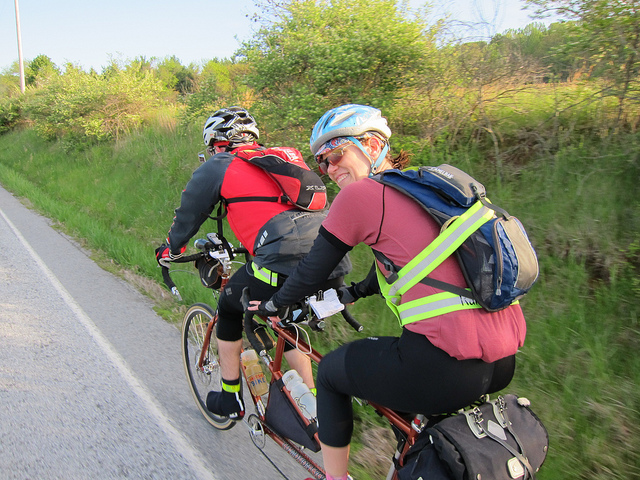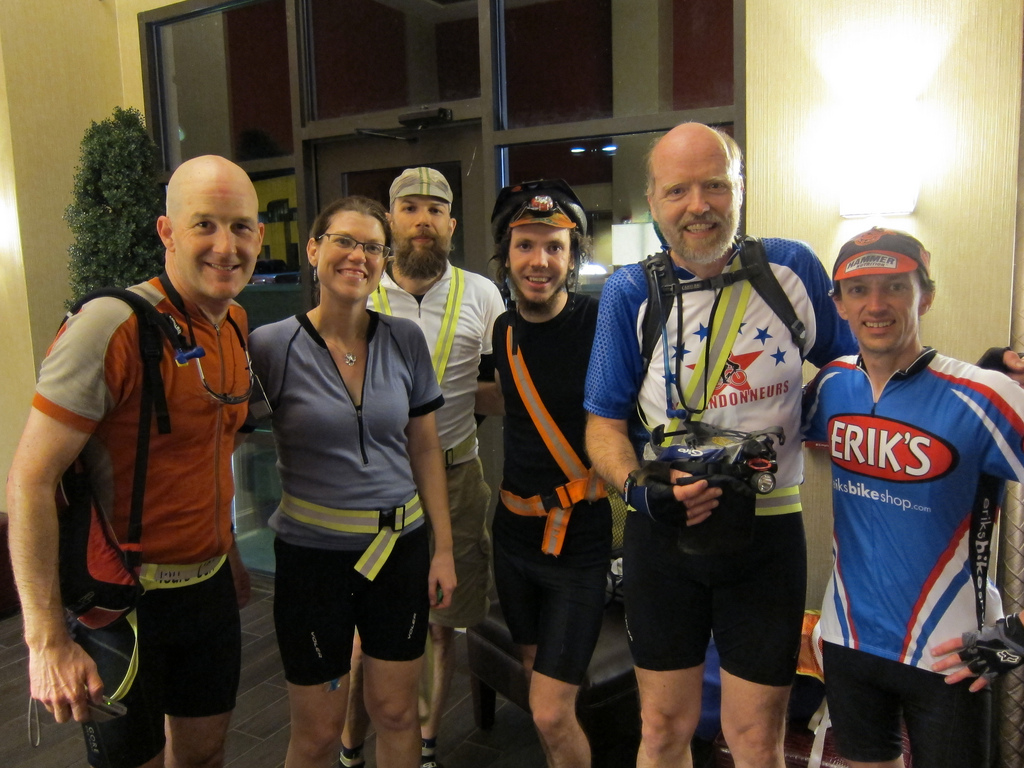Randonneuring requires a certain level of commitment (no, not that kind of commitment). Early rises, car rides, bike maintenance and tuning, convenience store dining, and long days and even evenings in the saddle are all part of the randonneur lifestyle.

Given that most of us do not have unlimited leisure time, what is it about the brevets that appeals enough that we’re willing to dedicate so much of our spring and summer (for some, even more) to it?
Pre-planned weekend escapes. You know those conversations “What should we do this weekend?” “I don’t know. What do you want to do?”
Sign up for brevets and you will significantly reduce the frequency with which you have these kinds of talks. Instead, you will have an immediate answer that covers many weekends from late February through June, either “I’m doing a training ride” or “I’m riding x brevet. See? Here’s the cue sheet.”
Training rides require some planning, but go for some rides, hit some hills, and get your miles in and you are set when it comes time for the brevet. Follow whatever the cue sheet says until it tells you that you’re done. The brevet drives the planning for you.
Many of the brevet courses I’ve ridden have been quite scenic and pleasant. We have some gorgeous riding in our area, including the Catoctins and the Blue Ridge. Brevets give me an excellent excuse to explore them a little more.
Strength. Successful completion of brevet distances requires both mental and physical strength. Over the last several years of doing brevets, I have seen my strength build as the year goes on.
Over the winter, I was talking with one of my riding friends about the surreality of knowing that your body is capable to doing a 400K distance when, in January, you’re happy to stop after grinding out a century.
Every year, though, I see my body’s response to the increase in miles. The early wake-ups never get easy, but eventually they become another part of the event. Going longer seems less of an overall effort. My ability to mentally break down the ride into manageable pieces becomes easier.
There is also something about the steady effort of a brevet that makes other parts of life seem more manageable. Maybe randonneuring imparts patience, helps us expand our limits, or teaches us strategies that apply to other facets of our lives.
Camaraderie. It’s always interesting to see who you will end up riding with on brevets and what types of conversations you’ll have. Randonneur conversation potpourri!
Often I end up discussing rides gone by or current randonneuring and riding plans with others, but you never know what interesting topics may arise. Randonneurs are a rather eclectic bunch.

Time with my randonneur spouse. I ride almost all brevets on tandem with my husband. I suppose this is somewhat unusual, as I hear stories of people who have to negotiate time on the bike with their non-randonneuring partners.
Over the years Felkerino and I have become pretty in tune with each other. He’s more of an early bird. I like the later miles.
I often wonder if I would ride brevets solo if Felkerino and I had not met. Maybe, but I am not generally the type of person who likes to do solo rides longer than a century.
I prefer a social component and Felkerino’s and my team of two works quite nicely in that regard. We like sharing the ride experience and spending the weekend outdoors together.
Figuring out the puzzle. Even though I have been riding brevets off and on since 2005, I still find myself tweaking my system. For example, what I used to eat on brevets (lots more sugary food) my stomach no longer tolerates. Over time, I have become better at riding longer without a break and have learned how to take active breaks on the bike.
In a weird way, I like seeing how my body has changed over time. What works to successfully complete a brevet is never an exact formula.
Customization. In her On Writing & Riding interview, fellow randonneur mmmmbike! discussed how randonneuring’s non-competitive foundation allows people to interpret it in their own ways.
You can ride a brevet like a race. You can treat it as a long group ride, or you can approach it as a more solitary experience. In the end, it’s all randonneuring.
I know this list of why we ride brevets is far from comprehensive. Please, all you randos out there, help me fill in the gaps.
Comments & questions welcome – moderated for trolls and spam.